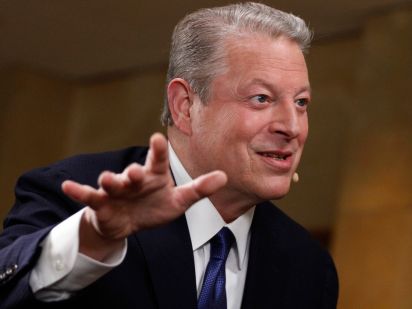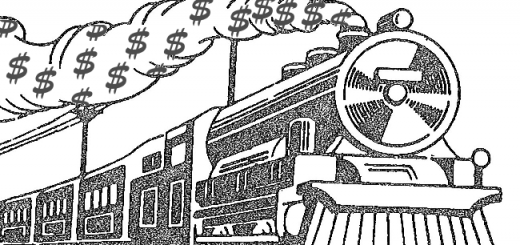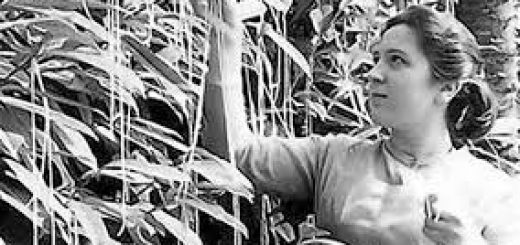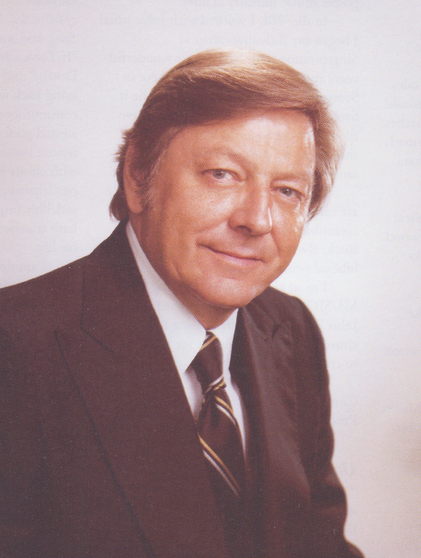Scientists respond to Gore’s warnings of climate catastrophe

“Professor Bob Carter of the Marine Geophysical Laboratory at James Cook University, in Australia gives what, for many Canadians, is a surprising assessment: “Gore’s circumstantial arguments are so weak that they are pathetic. It is simply incredible that they, and his film, are commanding public attention.”
What’s this? Someone even daring to doubt Gore? Surely this must be one out of only a few that believe this way. No says an article in CanadaFreePress.com
“Carter is one of hundreds of highly qualified non-governmental, non-industry, non-lobby group climate experts who contest the hypothesis that human emissions of carbon dioxide (CO2) are causing significant global climate change. “Climate experts” is the operative term here. Why? Because what Gore’s “majority of scientists” think is immaterial when only a very small fraction of them actually work in the climate field.”
Here are a few who would agree with Carter:
Dr. Ian D. Clark, professor, isotope hydrogeology and paleoclimatology, Dept. of Earth Sciences, University of OttawaDr. Tad Murty, former senior research scientist, Dept. of Fisheries and Oceans, former director of Australia’s National Tidal Facility and professor of earth sciences, Flinders University, Adelaide; currently adjunct professor, Departments of Civil Engineering and Earth Sciences, University of Ottawa
Dr. R. Timothy Patterson, professor, Dept. of Earth Sciences (paleoclimatology), Carleton University, Ottawa
Dr. Fred Michel, director, Institute of Environmental Science and associate professor, Dept. of Earth Sciences, Carleton University, Ottawa
Dr. Madhav Khandekar, former research scientist, Environment Canada. Member of editorial board of Climate Research and Natural Hazards
Dr. Paul Copper, FRSC, professor emeritus, Dept. of Earth Sciences, Laurentian University, Sudbury, Ont.
Dr. Ross McKitrick, associate professor, Dept. of Economics, University of Guelph, Ont.
Dr. Tim Ball, former professor of climatology, University of Winnipeg; environmental consultant
Dr. Andreas Prokoph, adjunct professor of earth sciences, University of Ottawa; consultant in statistics and geology
Mr. David Nowell, M.Sc. (Meteorology), fellow of the Royal Meteorological Society, Canadian member and past chairman of the NATO Meteorological Group, Ottawa
Dr. Christopher Essex, professor of applied mathematics and associate director of the Program in Theoretical Physics, University of Western Ontario, London, Ont.
Dr. Gordon E. Swaters, professor of applied mathematics, Dept. of Mathematical Sciences, and member, Geophysical Fluid Dynamics Research Group, University of Alberta
Dr. L. Graham Smith, associate professor, Dept. of Geography, University of Western Ontario, London, Ont.
Dr. G. Cornelis van Kooten, professor and Canada Research Chair in environmental studies and climate change, Dept. of Economics, University of Victoria
Dr. Petr Chylek, adjunct professor, Dept. of Physics and Atmospheric Science, Dalhousie University, Halifax
Dr./Cdr. M. R. Morgan, FRMS, climate consultant, former meteorology advisor to the World Meteorological Organization. Previously research scientist in climatology at University of Exeter, U.K.
Dr. Keith D. Hage, climate consultant and professor emeritus of Meteorology, University of Alberta
Dr. David E. Wojick, P.Eng., energy consultant, Star Tannery, Va., and Sioux Lookout, Ont.
Rob Scagel, M.Sc., forest microclimate specialist, principal consultant, Pacific Phytometric Consultants, Surrey, B.C.
Dr. Douglas Leahey, meteorologist and air-quality consultant, Calgary
Paavo Siitam, M.Sc., agronomist, chemist, Cobourg, Ont.
Dr. Chris de Freitas, climate scientist, associate professor, The University of Auckland, N.Z.
Dr. Richard S. Lindzen, Alfred P. Sloan professor of meteorology, Dept. of Earth, Atmospheric and Planetary Sciences, Massachusetts Institute of Technology
Dr. Freeman J. Dyson, emeritus professor of physics, Institute for Advanced Studies, Princeton, N.J.
Mr. George Taylor, Dept. of Meteorology, Oregon State University; Oregon State climatologist; past president, American Association of State Climatologists
Dr. Ian Plimer, professor of geology, School of Earth and Environmental Sciences, University of Adelaide; emeritus professor of earth sciences, University of Melbourne, Australia
Dr. R.M. Carter, professor, Marine Geophysical Laboratory, James Cook University, Townsville, Australia
Mr. William Kininmonth, Australasian Climate Research, former Head National Climate Centre, Australian Bureau of Meteorology; former Australian delegate to World Meteorological Organization Commission for Climatology, Scientific and Technical Review
Dr. Hendrik Tennekes, former director of research, Royal Netherlands Meteorological Institute
Dr. Gerrit J. van der Lingen, geologist/paleoclimatologist, Climate Change Consultant, Geoscience Research and Investigations, New Zealand
Dr. Patrick J. Michaels, professor of environmental sciences, University of Virginia
Dr. Nils-Axel Morner, emeritus professor of paleogeophysics & geodynamics, Stockholm University, Stockholm, Sweden
Dr. Gary D. Sharp, Center for Climate/Ocean Resources Study, Salinas, Calif.
Dr. Roy W. Spencer, principal research scientist, Earth System Science Center, The University of Alabama, Huntsville
Dr. Al Pekarek, associate professor of geology, Earth and Atmospheric Sciences Dept., St. Cloud State University, St. Cloud, Minn.
Dr. Marcel Leroux, professor emeritus of climatology, University of Lyon, France; former director of Laboratory of Climatology, Risks and Environment, CNRS
Dr. Paul Reiter, professor, Institut Pasteur, Unit of Insects and Infectious Diseases, Paris, France. Expert reviewer, IPCC Working group II, chapter 8 (human health)
Dr. Zbigniew Jaworowski, physicist and chairman, Scientific Council of Central Laboratory for Radiological Protection, Warsaw, Poland
Dr. Sonja Boehmer-Christiansen, reader, Dept. of Geography, University of Hull, U.K.; editor, Energy & Environment
Dr. Hans H.J. Labohm, former advisor to the executive board, Clingendael Institute (The Netherlands Institute of International Relations) and an economist who has focused on climate change
Dr. Lee C. Gerhard, senior scientist emeritus, University of Kansas, past director and state geologist, Kansas Geological Survey
Dr. Asmunn Moene, past head of the Forecasting Centre, Meteorological Institute, Norway
Dr. August H. Auer, past professor of atmospheric science, University of Wyoming; previously chief meteorologist, Meteorological Service (MetService) of New Zealand
Dr. Vincent Gray, expert reviewer for the IPCC and author of The Greenhouse Delusion: A Critique of ‘Climate Change 2001,’ Wellington, N.Z.
Dr. Howard Hayden, emeritus professor of physics, University of Connecticut
Dr Benny Peiser, professor of social anthropology, Faculty of Science, Liverpool John Moores University, U.K.
Dr. Jack Barrett, chemist and spectroscopist, formerly with Imperial College London, U.K.
Dr. William J.R. Alexander, professor emeritus, Dept. of Civil and Biosystems Engineering, University of Pretoria, South Africa. Member, United Nations Scientific and Technical Committee on Natural Disasters, 1994-2000
Dr. S. Fred Singer, professor emeritus of environmental sciences, University of Virginia; former director, U.S. Weather Satellite Service
Dr. Harry N.A. Priem, emeritus professor of planetary geology and isotope geophysics, Utrecht University; former director of the Netherlands Institute for Isotope Geosciences; past president of the Royal Netherlands Geological & Mining Society
Dr. Robert H. Essenhigh, E.G. Bailey professor of energy conversion, Dept. of Mechanical Engineering, The Ohio State University
Dr. Sallie Baliunas, astrophysicist and climate researcher, Boston, Mass.
Douglas Hoyt, senior scientist at Raytheon (retired) and co-author of the book The Role of the Sun in Climate Change; previously with NCAR, NOAA, and the World Radiation Center, Davos, Switzerland
Dipl.-Ing. Peter Dietze, independent energy advisor and scientific climate and carbon modeller, official IPCC reviewer, Bavaria, Germany
Dr. Boris Winterhalter, senior marine researcher (retired), Geological Survey of Finland, former professor in marine geology, University of Helsinki, Finland
Dr. Wibjorn Karlen, emeritus professor, Dept. of Physical Geography and Quaternary Geology, Stockholm University, Sweden
Dr. Hugh W. Ellsaesser, physicist/meteorologist, previously with the Lawrence Livermore National Laboratory, Calif.; atmospheric consultant.
Dr. Art Robinson, founder, Oregon Institute of Science and Medicine, Cave Junction, Ore.
Dr. Arthur Rorsch, emeritus professor of molecular genetics, Leiden University, The Netherlands; past board member, Netherlands organization for applied research (TNO) in environmental, food and public health
Dr. Alister McFarquhar, Downing College, Cambridge, U.K.; international economist
Dr. Richard S. Courtney, climate and atmospheric science consultant, IPCC expert reviewer, U.K.
Dr Vincent Gray, of Wellington, an expert reviewer for the Intergovernmental Panel on Climate Change (IPCC), most recently a visiting scholar at the Beijing Climate Centre in China.
Dr Gerrit J van der Lingen, of Christchurch, geologist/paleoclimatologist, climate change consultant, former director GRAINZ (Geoscience Research and Investigations New Zealand).
Prof August H. (Augie) Auer, of Auckland, past professor of atmospheric science, University of Wyoming; previously chief meteorologist, Meteorological Service (MetService) of New Zealand.
Warwick Hughes, a New Zealand earth scientist living in Perth, who conducts a comprehensive website: www.warwickhughes.com
Roger Dewhurst, of Katikati, consulting environmental geologist and hydrogeologist.
Owen McShane, of Kaiwaka, director of the Centre for Resource Management Studies, who is convenor of the establishment committee, said many scientists and economists were concerned that the United Nations International Panel on Climate Change (IPCC) had an effective monopoly on public announcements on global warming.
Sigh, I just continue to find the whole thing perplexing and confusing. Surely can something really be studied without a bias? I know one thing, I don’t trust Gore nor the mainstream media, both constantly being caught in lies and hypocrisies.
















Hi, I did a bit of digging and Bob Carter had this to say in an interview late last year:
full transcript
Seems the devil is in the detail and not the general point that we humans are screwing up the planet. 🙂
Vincenze.
ps Bob Carter is a geologist, not an atmospheric scientist…
Thought you’d like to know that both Bob Carter and the Canada Free Press article have serious problems:
http://scienceblogs.com/deltoid/2006/06/an_embarrassment_to_australian.php
Until the “skeptic” side actually addresses THOSE issues, it’s difficult to entertain their hypotheses.